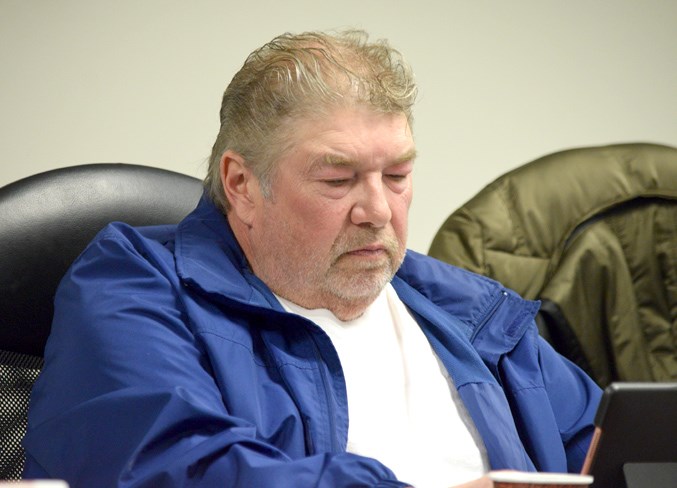Woodlands County council meetings will stick to their usual start times, at least for the near future.
On March 5 in Whitecourt, Woodlands County councillors could not come to a consensus on whether they should pick a new time and place of their bimonthly council meetings tabling the discussion for their strategic planning session.
At their Feb. 19 meeting councillors asked administration to come up with options for meeting start times after a series of longer than usual meetings.
Council meetings take place on the first and third Tuesday of the month, but the location and start times vary. The meeting which falls on the first Tuesday starts at 9:30 a.m. while the meeting on the third Tuesday starts at 7 p.m. The meeting locations alternate between the municipal office in Whitecourt and its satellite office in Fort Assiniboine.
Chief administrative officer Paul Hanlan said the reason why councillors asked administration to look at meeting time options is that the 7 p.m. starting time would mean council and staff often end their night after 10 p.m.
“That means for much of the year, the evening start means . . . means travelling both directions in the dark and it is quite a distance,” he said.
Hanlan also stated that administration is also concerned the evening start times when combined with longer meeting times, could result in having to pay overtime to county staff.
One of the recommendations administration came up with is to start both monthly meetings at 9:30 a.m., regardless of the location.
The other recommendation was to add a third monthly meeting, in Whitecourt, which would focus mainly on policy matters.
In addition to policy, this third meeting could include discussions on bylaws.
Hanlan was quick to point out that the meeting would only be an opportunity to discuss and debate bylaws.
“They would still have to come back to a committee [council] meeting for first, second, and third reading for adoption, as would policies,” he said. “The point is that the 45, 60 or 90 minutes discussing policy or bylaw could occur at the policy committee meeting and not a regular council meeting, where all the time it would take is 90 seconds to approve the action item.”
The meeting would also give any delegations an extra opportunity to address council as long as no motion was required. Committee of the whole [in-camera discussion] could also be part of the extra meeting. If the meeting wasn’t needed council could cancel it. The benefit of the extra meeting is that it would significantly shorten the regular council meeting.
“It is allowed under the Municipal Government Act and many communities have something similar,” Hanlan said, using the Town of Whitecourt’s policies and priorities meeting as an example.
Fort Assiniboine/Timeu Coun. Dale Kluin was opposed to adding the extra meeting saying councillors already attend too many meetings.
“When I started on council a number of years ago I went to five meetings a month. Now I go to 15 and 20,” he said. “If we have to add an extra hour or two at our regular meeting, it is a bigger bang for our buck.”
Anselmo Coun. Sylvia Bonnett, Goose Lake/Freeman River Coun. Dale McQueen and mayor Ron Govenlock expressed their concern about having both regular meetings in the morning,because they felt it didn’t give the public the opportunity to attend the meetings.
Whitecourt East Coun. Jim Rennie suggested if it was a meeting where members of the public or a delegation needed to attend, council had the option of scheduling an evening meeting.
However, Bonnett welcomed the extra meeting.
“We are so far behind and we have left these policies and bylaws go for so long it is kind of embarrassing really,” she said. “We need to spend more time cleaning up our policies and bylaws and not as much time out of the office at meetings and events. We have one coming up [Gravel Policy 3205] that hasn’t been revised since the 90s ... seriously.”
Whitecourt West Coun. John Burrows agreed, saying council needed to do “more heavy lifting” in order to bring the county’s policies and bylaws up to date.
Hanlan said another approach to take was scheduling a series of workshops to get councillors up to speed after administration did the groundwork to update their policies.
McQueen liked the workshop format and suggested they were partly to blame for allowing the county’s policies to become so outdated as well as the sometimes excessive length of council meetings.
“The last two [No Parking and Community Standards bylaws], which we threw back to administration because they were half baked that is our fault,” he said. “We didn’t give administration enough direction on what we wanted and I’ve seen that happen many times in the last year or two.”
Govenlock also favoured the workshop format as he was concerned about councillors ability to adequately prepare for a third meeting.



